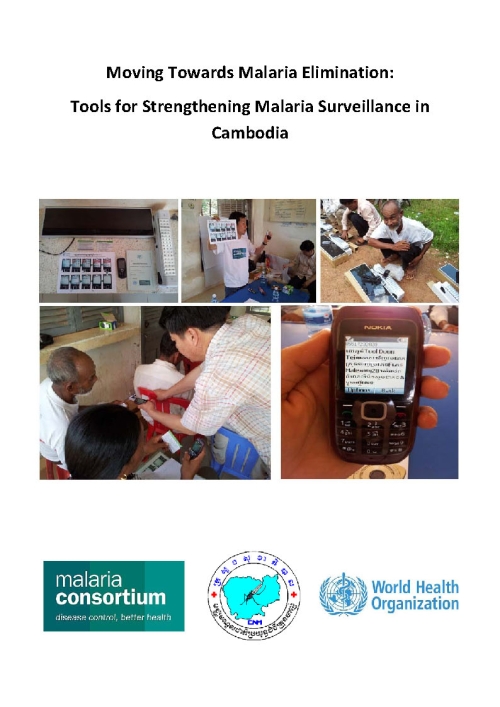
Publication Date:
01/01/2014
Type:
Project report

Moving towards malaria elimination: tools for strengthening malaria surveillance in Cambodia
Publication Date:01/01/2014
Type:
Project report
Prior to 2009 the main source of malaria case data in Cambodia came from the National Health Information System (HIS) which provided aggregate data at operational district (OD) level. Whilst useful for reporting total cases, this data was not sufficient to support stratification of villages based on malaria incidence. Malaria risk stratification of villages in Cambodia had been conducted on the basis of distance from the forest relying on outdated maps.
Parallel to this system and since 2004, Village Malaria Workers (VMWs) funded by the Global Fund to Fight AIDS, Tuberculosis and Malaria have also been collecting individual case data in paper form and sending it to the national programme who aggregated the data manually by district for donor reporting.
In 2009, as part of the Bill & Melinda Gates Foundation funded project to contain artemisinin resistant malaria along the Thai Cambodia border, Malaria Consortium was tasked to provide overall monitoring and evaluation (M&E) support and technical assistance for strengthening surveillance by developing efficient, timely systems for ongoing information management and feedback.
Country: Cambodia
Keywords: Capacity development | Digital health | Surveillance | Health system strengthening | Evidence generation | Malaria | Elimination | Resistance management
« Back to Publications